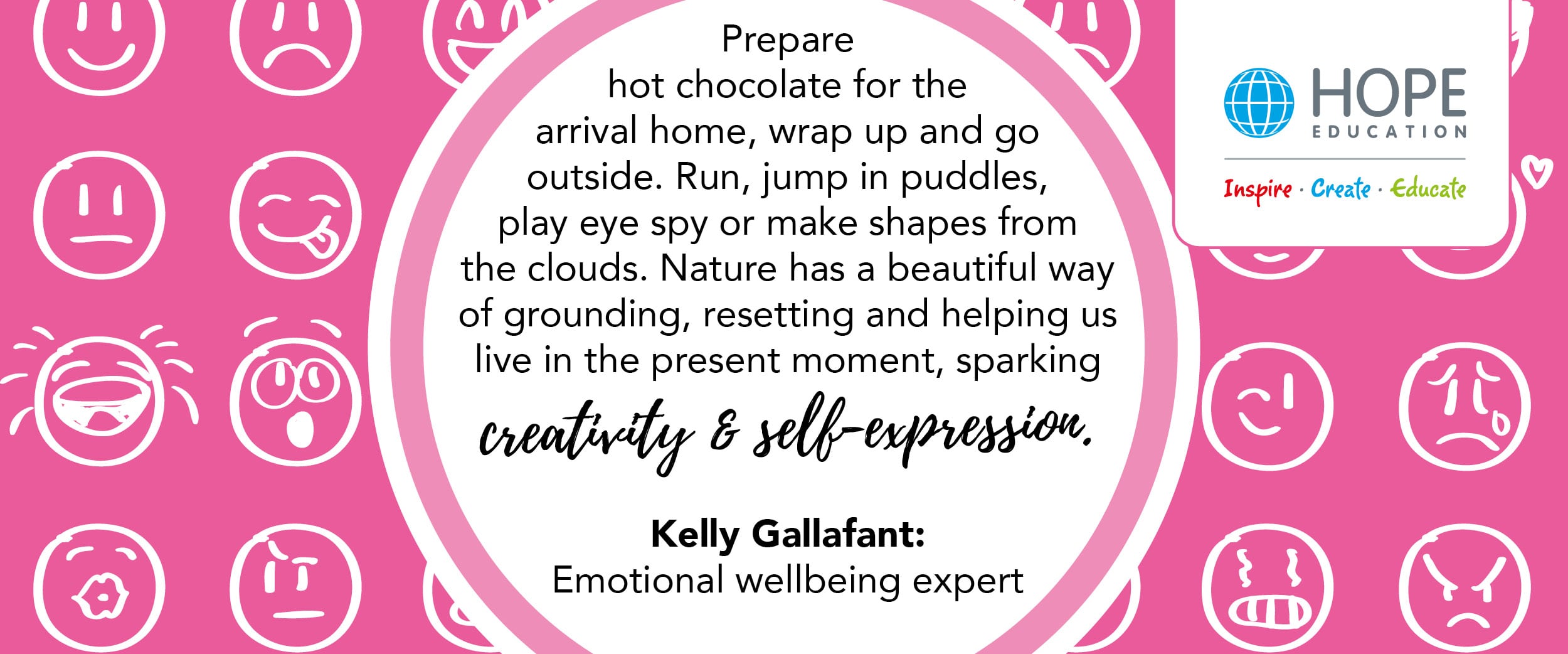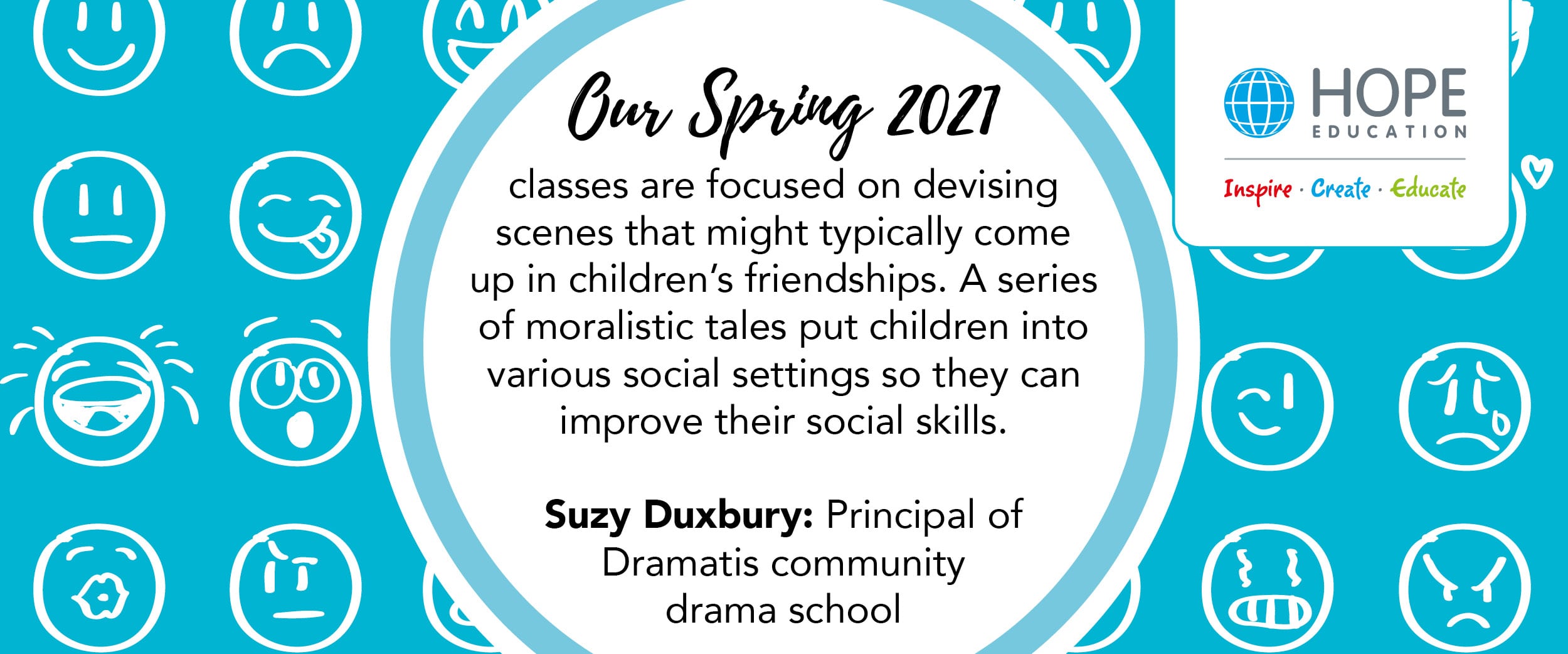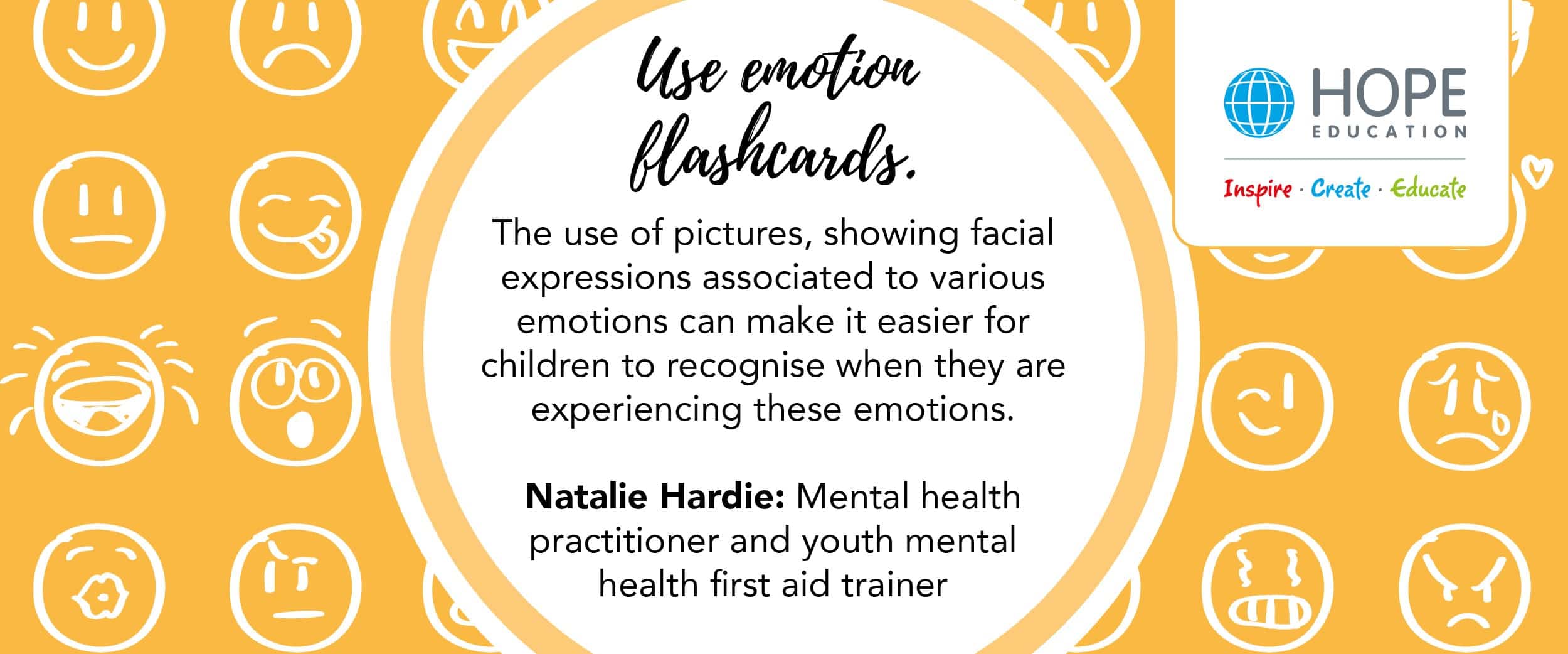It’s vital we raise awareness of the difficulties children can have with their mental health and work towards better outcomes.
To help teachers and parents in that goal, we’ve spoken to over 20 experts from fields such as psychology, behavioural health, edtech and teaching to see what tips and advice they would give to bring about better children’s mental health.
Some are related to this year’s focus, expressing yourself, whereas others are focused elsewhere. All of them should offer teachers and parents alike genuine insight into improving child mental health.
Consider how you react
How an adult reacts the first time a young person discloses important information about how they’re feeling can affect whether or not the young person goes on to disclose information in the future. If an adult gets cross or invalidates their feelings, a young person is likely to bottle up what they’re feeling rather than speaking out in the future.
If a young person tells you that they’re feeling really rubbish, act in a calm manner, listen to what they’re saying and give them as much opportunity to talk as they feel comfortable with. This will help them to feel safe and at that moment in time, that is what they need.
Dr Hayley van Zwanenberg: Consultant child and adolescent psychiatrist at Priory Wellbeing Centre, Oxford
Use emotion flashcards
These are an excellent teaching aid for different emotions. The use of pictures, showing facial expressions associated to various emotions can make it easier for children to recognise when they are experiencing these feelings/emotions (especially when they can’t find the words to describe them) and also when others are showing them too.
Natalie Hardie: Mental health practitioner and youth mental health first aid trainer, NH Neuro Training
Help them appreciate and understand feelings
What we miss is the bigger picture, to help them find an entire narrative for what they feel. For example, instead of helping children know “you’re angry right now“, you would help them express the reason why, like “you are angry because you were in the middle of something when I told you you had to come to dinner now.”
When children are helped to appreciate and understand not only their own feelings but also their own stories, they can feel comfortable in their own skin.
Dr. Claudia Luiz: Psychoanalyst and award-winning writer on psychoanalytics, New York
If a young person tells you that they’re feeling really rubbish, act in a calm manner, listen to what they’re saying and give them as much opportunity to talk as they feel comfortable with.
Create activities around social dilemmas
With children’s lack of social interaction with peers being the main concern of most parents, our Spring 2021 classes are focused on devising scenes that might typically come up in children’s friendships. A series of moralistic tales put children into various social settings so they can improve their social skills.
Titles such as ‘The Girl who couldn’t Share’ and ‘The Boy who was to shy to talk’ help develop children’s’ empathy skills, improve their listening/responding skills, help them work collaboratively and enable them to better communicate their feelings.
Suzy Duxbury: Principal of Dramatis community drama school, which moved to remote sessions during lockdown
Get outside
I know, it’s the middle of winter, but prepare hot chocolate for the arrival home, wrap up and go outside.
Run, jump in puddles, play eye spy or make shapes from the clouds. Nature has a beautiful way of grounding, resetting and helping us live in the present moment, sparking creativity and self-expression.
Kelly Gallafant: Emotional wellbeing expert, The Nurture Meadow
Establish routines
Establish and create regular routines for children as it brings predictability and safety which is critical, especially during a pandemic. It can also contribute to reduced anticipatory anxiety or panic-related experiences.
Martina Witter: BABCP accredited cognitive behaviour psychotherapist at Rapha Therapy

Create a safe space
Offer children a safe space. A parent or other caregiver can offer the child five minutes of child-directed play each day – during this time the adult should not command, criticize, or question the child.
Rather, the adult should only follow the child’s lead and allow the child to pick the activity and offer specific and labeled praise.
Dr. Tamar Blank: Licensed psychologist in New York & New Jersey, Riverdale Psychology
Show empathy in difficult moments
Empathy in difficult moments can open the door to what is going on underneath outbursts. Usually, sadness or fear is hidden beneath anger. When we empathize and listen deeply, we have a chance to truly connect with our kids.
This doesn’t mean parents condone inappropriate behavior or do not set limits. It means we recognize their discomfort and make sure they feel heard.
Jessica Speer: Author – BFF or NRF (Not Really Friends)? A Girls Guide to Happy Friendships
Encourage them to be who they are
Encouraging your child to be who they are is one of the biggest mental health and emotional wellbeing learning resources you can provide as a parent. Everyone learns differently and has interests in different things.
By encouraging the pursuit of their unique interests, you’re setting up your child for a lifetime of greater success, happiness, and fulfillment.
Patrick Quinn: Parenting Expert at Brainly

Lean on popular culture
Use examples from movies and books they like. Children tend to repeat the actions of their favorite characters. Try to pick up on their dilemmas, their struggles, their feelings and behaviors, the language they use. They are your teaching examples.
Whenever you are trying to help children express an emotion, you can remind them of the character they like or admire. “Remember when they did _________, because they felt ______. Is that how you are feeling right now?” Or, “what would ________(character) do if they were in your shoes?”
Ana Jovanovic: Psychotherapist, Parenting Pod
Don’t be like everyone else
Teach your child to be happy with who they are rather than trying to be like everyone else. Be aware of any changes in your child’s behaviour which could indicate that they may be struggling with their mental health and remember, do not be afraid to ask for help from the many mental health support groups.
Diane Hull: Retired teacher and author
Put pupil wellbeing at the heart of schools
Humanising our approach in schools is the key. By putting teacher and student well-being in the center of the circle, and surrounding them with a focus on opportunities for success, creativity, individual exploration and self-discovery – we lift up all boats.
Kevin Baird: Co-author – Whole: What Teachers Need to Help Students Thrive, Chief Academic Officer, Achieve3000
Validate and acknowledge emotions
Validate and acknowledge their emotions and struggles. Share any relevant and relatable experiences. Perhaps you could use an example of a famous person who has similarly struggled in order to put their situation into context.
Explain that you have also had moments in your life when you felt low in mood and therefore you can somehow understand how feeling very low in mood feels like.
Dr Maite Ferrin: Consultant psychiatrist at Re:Cognition Health
Empathy in difficult moments can open the door to what is going on underneath outbursts. Usually, sadness or fear is hidden beneath anger. When we empathize and listen deeply, we have a chance to truly connect with our kids.
Let them make mistakes
Let your child do things on her own that are just outside of her current ability level. By stumbling a little along the way, they will understand that mistakes are ok and that they are part of learning.
If you, as a parent or teacher, allow mistakes, you are setting the child up to have resiliency and the ability to try new things without fear of failure. Resiliency is what allows children and adults to bounce back from the difficulties that arise in life.
Kathryn Ely: Counselor & anxiety therapist, Empower Counseling
Be aware of your own stress levels
What we may not think about when we’re under huge levels of stress this way is that our children could be picking up on that anxiety and stress. They absorb so much from us, our knowledge, our energy and our stress too. And sometimes they can reflect it back by becoming stressed and anxious themselves.
So, for them, I think we should take a deep breath and let go of ‘perfect’, or even ‘good’. And instead just try to get by and enjoy the little things that we can do, together.
Sophia Nomicos: Founder of the Mas & Pas parenting network
Sleep is important
Understanding the importance of sleep habits is one of the most crucial factors for children’s emotional wellbeing. Recent studies in pediatric neuroscience revealed that preschool age children need between 10-13 hours of sleep per day while school-age children need between 9-11 hours per day.
However, sleep quantity is not enough, and we also need to understand how to improve children’s sleep quality. Always put your children to bed when they are drowsy, rather than when they are asleep; in doing so, infants and children are significantly more likely to develop an independent ability to self soothe at night without needing a parent.
Ori Hofnung: Founder and CEO of edtech child development app GiantLeap
Give them an outlet
Give children outlets to express their anger and anxiety. Protest art, notes on sticky paper, and the use of feeling thermometers are helpful. The point is to get feeling out, not keep inside festering.
Karen Gross: Children’s Author and Educator

Use humour
One aspect of children’s mental health and wellbeing that is generally overlooked is the development of a sense of humor. Humor and mental health (wellbeing) is not a new idea but mostly overlooked.
Visualise favorite humorous moments. Invite the child to visualise and share funny moments. (Ones where he/she laughed so hard he/she fell down, cried, or peed his/her pants.) These can be real situations or can be situations seen on sitcoms or created from stories, jokes, cartoons, etc.
Steven M. Sultanoff, PhD: Clinical psychologist, MyCMEmatters
Give them a version of what they want
The most important thing we do is allow kids to have their way (or a version of what they want) when they hear no and respond appropriately. Showing a child that remaining calm and using their words can lead to positive outcomes will increase the likelihood that they will remain calm and use their words in the future.
An occasional “You know what, I’m really impressed with the deep breaths you took after I said that we were not going to the sweets shop”, or “What do you say we have a sweet when we get home?”, can completely change a child’s reaction and emotional well being around hearing and accepting no.
Kellie Syfan: Behavior analyst and consultant, Applied Behavioural Happiness
Teach the language of feelings
This language refers to different words used to express a feeling or emotion. Try to use more and more expressive words around them and describe the feelings of others and yours as well, so that the kids learn how to use those words and be more expressive.
One of the reasons why children usually don’t speak about how they feel, even if you ask them, is because they don’t know how to express themselves. It affects their mental and emotional well-being. As a practicing psychologist, I suggest every parent and teacher do this around your kids and teach them to be expressive.
Elizabeth Hicks: Psychologist and Co-founder of ParentingNerd
Be approachable
Make sure they know that you are always happy to listen, and happy to listen about anything. All too often today’s kids can suffer from a sense of detachment from their parents, unwilling to express themselves openly for fear of being uninteresting or misunderstood.
Children should be encouraged – not forced – to talk about everything – feelings, anxieties, wants, and needs – from the earliest age in the comfortable certainty that the parents want to do so. They should feel completely comfortable expressing themselves without being worried that they will be ignored, chastised, or corrected for doing so.
Leo Young: Creator of Optimized Family
Turn off tech
Commit to turning off the tech and turning toward one another each day. Kids need authentic, three dimensional experiences for emotional growth, learning and containment of overwhelming feelings. This happens, especially now when there is so much distraction, by hugging them, looking them lovingly in the eye, talking to them, and using language and experiences to connect, reassure, and create balance.
Dr. Rebecca Mannis: Ph.D. in Developmental Psychology and Learning Specialist, Ivy-Prep
You can find out more about Children’s Mental Health week, running from the 1st-7th February 2021, on their website.